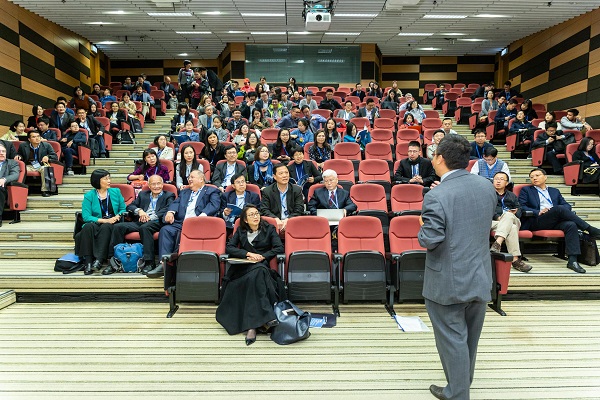NEET Exam Details
The National Eligibility cum Entrance Test (NEET) is a highly competitive examination in India that determines the eligibility of students for admission to medical and dental colleges across the country. It is conducted in India for students aspiring to pursue undergraduate medical and dental courses in government and private medical colleges across the country. The NEET exam is conducted by the National Testing Agency (NTA) and is the only entrance exam that grants admission to medical and dental courses in India.
NEET was introduced in 2013, replacing several state-level medical entrance exams. It is now mandatory for all students who wish to pursue medical or dental courses in India to appear for NEET exam.
If you are planning to appear for NEET exam 2023, here is everything you need to know about NEET eligibility.
Eligibility criteria for NEET
To be eligible to appear for NEET, a candidate must meet the following criteria:
Age Limit
As per the latest guidelines, the minimum age limit for NEET is 17 years and the maximum age limit is 25 years (for general category candidates) and 30 years (for reserved category candidates). The age limit is calculated as on December 31 of the year of admission.
Educational Qualification
To be eligible for NEET, a candidate must have completed or appearing in 10+2 or equivalent examination with Physics, Chemistry, Biology/Biotechnology, and English as compulsory subjects from a recognized board. The minimum marks required in the qualifying examination are 50% for general category candidates and 40% for reserved category candidates.
Nationality
To appear for NEET, a candidate must be an Indian citizen or an Overseas Citizen of India (OCI). Non-Resident Indians (NRIs) and Persons of Indian Origin (PIOs) are also eligible to apply for NEET, subject to certain conditions.
Domicile
There is no state-wise eligibility criterion for NEET exam. However, for admission to state medical colleges, candidates must fulfill the domicile criteria of the respective states.
Number of Attempts
As per the latest guidelines, there is no limit on the number of attempts for NEET. However, the maximum age limit applies, and candidates must ensure that they are within the age limit while applying for the exam.
Reservation Policy
NEET follows a reservation policy as per the norms of the Government of India. The reservation policy is applicable to candidates belonging to Scheduled Castes (SC), Scheduled Tribes (ST), Other Backward Classes (OBC), Economically Weaker Sections (EWS), and Persons with Disabilities (PWD).
NEET syllabus
The Syllabus for NEET is based on the NCERT curriculum for classes 11 and 12. The syllabus includes topics such as Human Physiology, Reproduction, Ecology and Environment, Diversity in Living World, Cell Structure and Function, Human Welfare, Genetics and Evolution, Plant Physiology, Biotechnology, and more.
The National Eligibility cum Entrance Test (NEET) is the most important exam for students who want to pursue a career in the medical field. NEET exam is conducted by the National Testing Agency (NTA) and is the gateway to admission in various medical courses in India. Aspirants who are planning to appear for NEET should be well aware of the NEET syllabus, which is the foundation for their preparation. In this article, we will discuss everything you need to know about the NEET syllabus.
The syllabus is divided into three sections:
- Physics: 45 questions, 180 marks
- Chemistry: 45 questions, 180 marks
- Biology: 90 questions, 360 marks
The total duration of the exam is three hours, and it is conducted in offline mode.
Detailed Syllabus of NEET
Physics Subject
- Class XI:
- Physical world and measurement
- Kinematics
- Laws of Motion
- Work, Energy and Power
- Motion of System of Particles and Rigid Body
- Gravitation
- Properties of Bulk Matter
- Thermodynamics
- Behavior of Perfect Gas and Kinetic Theory
- Oscillations and Waves
2. Class XII:
- Electrostatics
- Current Electricity
- Magnetic Effects of Current and Magnetism
- Electromagnetic Induction and Alternating Currents
- Electromagnetic Waves
- Optics
- Dual Nature of Matter and Radiation
- Atoms and Nuclei
- Electronic Devices
Chemistry Subject
- Class XI:
- Some Basic Concepts of Chemistry
- Structure of Atom
- Classification of Elements and Periodicity in Properties
- Chemical Bonding and Molecular Structure
- States of Matter: Gases and Liquids
- Thermodynamics
- Equilibrium
- Redox Reactions
- Hydrogen
- s-Block Element (Alkali and Alkaline earth metals)
- Some p-Block Elements
- Organic Chemistry- Some Basic Principles and Techniques
- Hydrocarbons
- Environmental Chemistry
2. Class XII:
- Solid State
- Solutions
- Electrochemistry
- Chemical Kinetics
- Surface Chemistry
- General Principles and Processes of Isolation of Elements
- p-Block Elements
- d and f Block Elements
- Coordination Compounds
- Haloalkanes and Haloarenes
- Alcohols, Phenols and Ethers
- Aldehydes, Ketones and Carboxylic Acids
- Organic Compounds Containing Nitrogen
- Biomolecules
- Polymers
- Chemistry in Everyday Life
Biology Subject
- Class XI:
- Diversity in Living World
- Structural Organization in Animals and Plants
- Cell Structure and Function
- Plant Physiology
- Human physiology
- Class XII:
- Reproduction
- Genetics and Evolution
- Biology and Human Welfare
- Biotechnology and Its Applications
- Ecology and Environment
How to Prepare for NEET Syllabus
Preparing for NEET can be a daunting task, but with the right approach and planning, it can be accomplished with ease. The first step is to understand the NEET syllabus and create a study plan accordingly. Start with the basics and gradually move to the advanced level. Make notes and revise them regularly. Practice solving previous year question papers and mock tests to get a feel of the exam. It is also essential to take care of your health and well-being during the preparation phase.
NEET score and admission
After the exam, the NTA releases the NEET scorecard, which includes the candidate’s score and rank. Based on their score and rank, candidates can apply for admission to various medical and dental colleges across India. The admission process is conducted through the All India Quota (AIQ) and the State Quota.
Conclusion
NEET exam 2024 is a crucial exam for students aspiring to pursue medical and dental courses in India. It is essential to prepare well for the exam to secure a good rank and increase the chances of getting admission to a preferred college. The syllabus for NEET is vast, and candidates must devote sufficient time to each subject and topic to excel in the exam. With the right guidance and dedication, aspirants can crack NEET and fulfill their dreams of becoming a doctor or a dentist.







